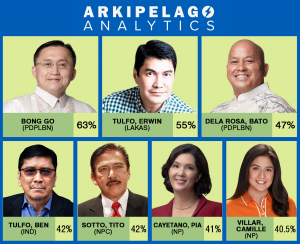 A BUSINESS LEADER in Davao del Norte has expressed his support to the campaign to allow Davao Light and Power Co. (Dalight) to take over the operational control of the remaining areas in the province from the the Northern Davao Electric Cooperative (Nordeco).
A BUSINESS LEADER in Davao del Norte has expressed his support to the campaign to allow Davao Light and Power Co. (Dalight) to take over the operational control of the remaining areas in the province from the the Northern Davao Electric Cooperative (Nordeco).
In a text message, Virgilio Agunod, executive vice president of the Tagum City Chamber of Commerce and Industry, called the campaign “a very good move.”
Agunod said the takeover by a private entity of the of the operational control over the remaining areas of the Nordeco franchise area in the province “will allow it to provide the much-needed stable power” needed especially for growing urban areas.
“(If the takeover is successful, it would allow the province) to meet the much-needed electricity supply,” he said, implying that the electricity in the province is not stable.
If the takeover is successful, the city and the entire province will join a few local government units in Mindanao, whose electricity requirements are supplied by private distribution utilities.
Aside from Davao City, which is part of the franchise area of Dalight, the other cities whose distribution utilities are Cagayan de Oro for the Cagayan de Oro Electric Co., Iligan Light and Power Inc., and Cotabato City for Cotabato Light and Power Co.
DaLight and Cotabato Light are both subsidiaries of the AboitizPower Co., the power group of the Aboitiz business empire.
Although the power operator of Zamboanga City is a private entity, its case is different. The Zamboanga City Electric Cooperative decided to allow a private company to operate and manage its assets.
Aside from Davao City, Dalight also provides power to the towns of Sto. Tomas, Carmen and Braulio Dujali and Panabo City in Davao del Norte, while the electric submarine cable for the power in the Island Garden City of Samal, another area in the province, is connected to the transmission facilities of Dalight.
The campaign, which is circulating on line in the form of signature solicitation, was anchored on the fact that some of the areas in the province are being serviced by the private company.
However, the management of Nordeco, whose name was changed from the Davao del Norte Electric Cooperative (Daneco) about two years ago, has resisted the plan, saying that some “oligarchs and politicians” are behind it.
In a mobile call, Manuel Angelo Sotto, Nordeco general manager, said that the campaign is not new as this has been ongoing since the 1990s, but that nothing has happened.
He said that the cooperative has alleviated its status as a electric provider based on the awards that it has received since his team took over the management of the cooperative when President Rodrigo R. Duterte appointed it in 2017.
Dalight has not gotten involved in the issue, saying it is the member-consumers of the cooperatives should be the ones to settle the issue themselves.
The President appointed a team to manage the cooperative after an internal conflict broke it into two factions, one of them wanted to take it out of the supervision of the National Electrification Administration (NEA) and placed it under the stewardship of the Cooperative Development Authority.
Following a legal battle, the campaign to get it affiliated with the CDA lost steam as under the law that created Daneco and other electric cooperatives in the country specified that they must be under NEA.
This is because, unlike regular cooperatives, electric cooperatives are not for profit and do not have stocks as what they generate should be plowed back to the communities in the form of continued electrification.
Also, unlike regular cooperatives, member-consumers do not own stocks in electric cooperatives and their roles are limited to just being customers and voters for members of the board of directors.
In the signature campaign, posted last week on the change.org platform, said that allowing Dalight to take over the operations of the remaining areas in Davao del Norte which are still under Nordeco, will not only improve the delivery of services, but would also lead to cheaper rates.
It also tagged the cooperative as being marred in corruption, although it did not come up with a specific explanation on this aspect.

